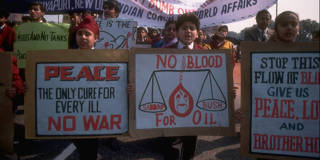American policymakers readily conflate the goal of reasserting US global primacy with the establishment of a more secure and prosperous world order. But the myth of US exceptionalism too often blinds them to the reality of how they exercise power.
CAMBRIDGE – When I started teaching at Harvard’s Kennedy School in the mid-1980s, competition with Japan was the dominant preoccupation of US economic policy. The book Japan as Number One by Harvard’s premier Japan expert at the time, Ezra Vogel, set the tone of the debate.
I remember being struck back then by the degree to which the discussion, even among academics, was tinged by a certain sense of American entitlement to international preeminence. The United States could not let Japan dominate key industries and had to respond with its own industrial and trade policies – not just because these might help the US economy, but also because the US simply could not be number two.
Until then, I had thought that aggressive nationalism was a feature of the Old World – insecure societies ill at ease with their international standing and reeling from real or perceived historical injustices. American elites, rich and secure, may have valued patriotism, but their global outlook tended toward cosmopolitanism. But zero-sum nationalism was not far from the surface, which became clear once America’s place atop the global economic totem pole was threatened.

CAMBRIDGE – When I started teaching at Harvard’s Kennedy School in the mid-1980s, competition with Japan was the dominant preoccupation of US economic policy. The book Japan as Number One by Harvard’s premier Japan expert at the time, Ezra Vogel, set the tone of the debate.
I remember being struck back then by the degree to which the discussion, even among academics, was tinged by a certain sense of American entitlement to international preeminence. The United States could not let Japan dominate key industries and had to respond with its own industrial and trade policies – not just because these might help the US economy, but also because the US simply could not be number two.
Until then, I had thought that aggressive nationalism was a feature of the Old World – insecure societies ill at ease with their international standing and reeling from real or perceived historical injustices. American elites, rich and secure, may have valued patriotism, but their global outlook tended toward cosmopolitanism. But zero-sum nationalism was not far from the surface, which became clear once America’s place atop the global economic totem pole was threatened.